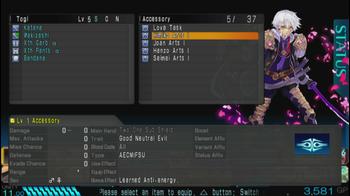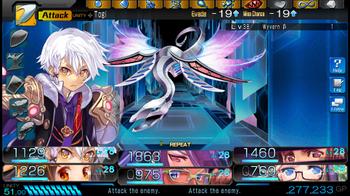
Operation Babel: New Tokyo Legacy Review
Two years ago, I reviewed Operation Abyss: New Tokyo Legacy. While I wasn't totally enamored with it, I found it to be a solid and cohesive dungeon crawler. Now the sequel, Operation Babel: New Tokyo Legacy, is out this month and, put shortly, it's essentially more of the same.
Once again, Operation Babel is a dungeon crawler reminiscent of the Wizardry series. Everything is experienced from a first-person viewpoint, from dungeon exploration to battles to story scenes - which mostly consist of character art and text-boxes. Chances are if you are reading this review, you already probably know what to expect here.
Babel is a direct sequel to Abyss, with largely the same cast of characters returning. Although it was only two years ago, I could not actually recall what happened in the previous game, but turns out that it's really not too important here. The conflict this time around is mostly unrelated, although there are a few callbacks here and there.
However, you shouldn't buy this game (or its predecessor) for the plot elements or characters anyway. Most of the story beats come down to technobabble nonsense - so much so that some plot explanations are so comical in their absurdity that it almost feels like a parody.
These sorts of narrative pieces are certainly not the main draw to this genre. It works well enough as a basic background to combat and dungeon crawling, but that's about it.
If you are already familiar with the genre, getting into Operation Babel will feel pretty natural. Most of the systems are effectively the same as Demon Gaze, Stranger of Sword City, and the like. For everyone else: the character creation, item mechanics, and progression systems might seem needlessly obtuse and convoluted. Dungeon crawlers tend to favor flexibility over ease-of-use, so the learning curve can certainly take some getting used to.
Operation Babel, like its predecessor, doesn't do itself any favors in how it uses game-specific jargon for just about everything. Classes are "Blood Codes", the currency is called "Growth Points", your inventory is the "sub-disk', to buy something is to "issue" it, etc. So not only do players have to figure out the ins and outs of the actual creation mechanics, they also have to figure out what the heck the tutorials are talking about to begin with.
If you've played Operation Abyss, everything works exactly the same with one new addition. You can now give each of your characters a secondary class Blood Code, allowing them to gain a second set of abilities in addition to their primary skills. It's a nifty little addition that gives the player just a bit more room to experiment without adding too much headache.
Personally, one thing that especially draws me to these sorts of dungeon crawlers is how they handle party coordination. I feel like too often in RPGs you can ultimately rely on an overpowered character, perhaps an overpowered skill, super equipment, or some such.
Alternatively, you can often simply rely on over-leveling to surpass any challenge thrown at you.
In my experience, dungeon crawlers of these sorts tend not to fall into these sorts of traps. Operation Babel isn't a terribly difficult game, but it does require some planning and strategizing if you want to avoid the Game Over screen. Knowing what each class Blood Code can do and how they can contribute to combat is incredibly important to understand, moreso than other types of RPGs.
Each member of the party is legitimately crucial, especially when facing off against late or post-game boss creatures. The knight character absorbs damage and takes hits in place of the rest of the party, the Academic constantly manages the Unity gauge (for party-wide abilities) while also dealing a few status effects, the Physician is your primary healer but also manages your party accuracy and evasion. Different types of damage dealers - like Samurai, Warriors, and Archers - also become uniquely useful in different battle formats depending on the enemy numbers and skill set.
The interplay of the many and various Blood Code abilities is the crux of the combat in Operation Babel, similar to other games in the genre. The better you can coordinate your characters, and the better you know how to balance your team, the easier time you will have.
The main progression throughout Operation Babel is typical enough. Your party is tasked to explore various dungeons (called "Abysses") usually to find some mysterious foe or monster. Throughout these dungeons, you'll encounter puzzle elements like one-way paths, door puzzles, warp rooms, and traps. Here you'll also encounter enemies, the hostile Variants.
Once you've got a handle on your party, progressing through the game becomes a bit more straightforward. You navigate mazes, take out Variants, power up your team, and head to the next objective. The dungeon crawling is satisfying enough, with an appropriate level of difficulty and enough twists and turns in the labyrinths to keep things interesting without becoming too overwrought.
For those who really like to challenge themselves, Operation Babel has a considerable amount of tough post-game content. While a lot of it boils down to refighting earlier bosses that're now powered-up, there's no shortage of difficulty if you decide to play past the credits roll.
As a dungeon crawler, Operation Babel is basically more-of-the-same. It's a competent entry into the genre, even if it's not a terribly interesting one. Fans of dungeon crawlers won't mind adding it to their collection, but it certainly doesn't stand out from the rest.


